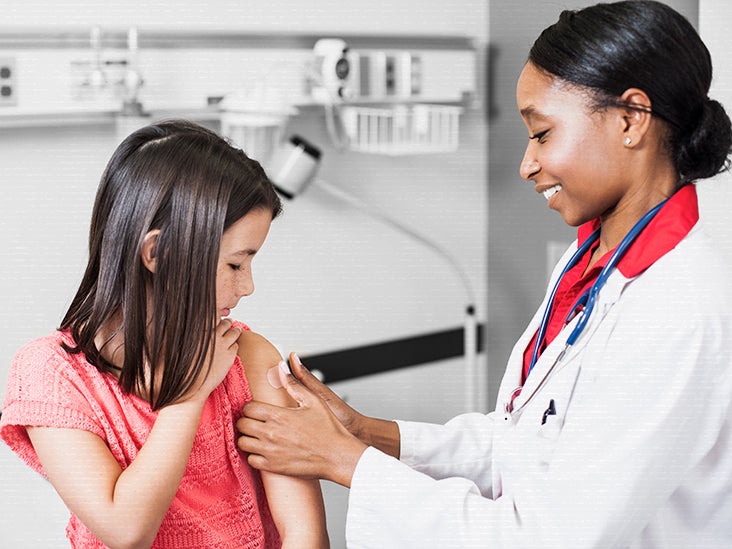HPV shot: Safety, efficacy, and who should get it - Medical News Today

The human papillomavirus (HPV) is a common virus that can spread through sexual contact. While some HPV infections may resolve by themselves, others can persist and increase the risk of certain cancers. To reduce this risk, people can receive an HPV vaccine that helps protect against several strains of HPV. These include strains that can cause warts and strains that can cause cancer.
Sexually transmitted infections (STIs) are infections that a person can get after intimate skin-to-skin contact with another person. There are at least 20 different STIs borne by viruses, bacteria, and parasites that can transmit via sexual contact. Of these, HPV is the
In addition to routine testing and practicing safer sex methods, receiving the HPV shot can help reduce the risk of HPV infections that can result in genital warts and HPV-related cancers.
In this article, we will discuss the safety and efficacy of HPV shots and who should consider receiving the vaccine.
HPV is a group of more than 200 related viruses. People refer to them as papillomaviruses because many of them can cause papillomas or warts. From this group, roughly 40 types can spread through direct sexual contact. Among these, two types can result in genital warts, and many types are high-risk and can cause certain types of cancer, such as:
HPV shots can help prevent infections from certain types of HPV and the cancers associated with them. Similar to other immunizations, they stimulate a person's body to create antibodies that prepare them to fight off the infection upon future encounters.
HPV vaccines contain virus-like particles that closely resemble particles on HPV's surface. These illicit a strong immune response, enabling a person to produce high levels of antibodies against HPV, which provides effective protection.
At present, there are
The
Safety reviews for these vaccines, published in
The CDC states that the HPV vaccines are
Aside from helping prevent HPV infections, large-scale studies published in
While Cervarix and Gardasil help prevent infection from two high-risk HPV types (HPV16 and HPV18) compared with Gardasil-9, evidence suggests that their efficacy is comparable, as these two HPV types are responsible for most HPV-caused cancers.
The CDC's
The CDC notes that HPV vaccination may not be advisable for individuals older than age 26 years, since giving the vaccine to a person in this age group offers less benefit. But people ages 27–45 years who have not received a vaccination can speak with their doctors to discuss their options and whether the vaccine will benefit them.
Certain individuals should not receive the vaccine. This includes:
- individuals with a severe allergic reaction to a past dose of HPV vaccine or any component of the vaccine
- those with an allergy to yeast
- people who are pregnant
While a vaccine will not likely cause harm to a fetus, the CDC
Those with an allergy to yeasts or who have severe allergic reactions should first consult with their doctor. If a person is unwell or has a severe condition, they should consider speaking with their doctor before receiving any vaccines.
Health authorities recommend people receive the vaccines at a young age. This is because getting them before a person's first sexual contact can offer lifelong protection against HPV-related cancers. Children can take it as early as age 9 years, but people typically receive the vaccine at 11–12 years old.
Children younger than 15 years old only need to have
Like other vaccinations, HPV can have side effects. But many people do not get any side effects or report very mild ones. These can
Sometimes, people can experience jerky movements or may faint after receiving their shot. So it is advisable for people to sit or lay down for about 15 minutes after receiving their shots to help prevent them from fainting or falling.
Rarely, people with severe allergies may have severe allergic reactions (anaphylaxis) after receiving their shot. People should tell the healthcare professional of any severe allergies before receiving the vaccine.
Individuals and caregivers of children can inquire about the HPV vaccine from their healthcare professional, community and school health clinics, health centers, and health departments.
Individuals can also check the CDC's
HPV is a group of viruses with hundreds of different types that can cause common viral infections affecting the skin, particularly moist skin areas, such as the genitals, mouth, throat, and anus. HPV is the most common STI in the U.S. While many HPV infections are not harmful, some types can result in the development of cancer.
Getting an HPV vaccine, especially before a person becomes sexually active, can offer lifelong protection from high-risk HPV types associated with cancer.

Comments
Post a Comment